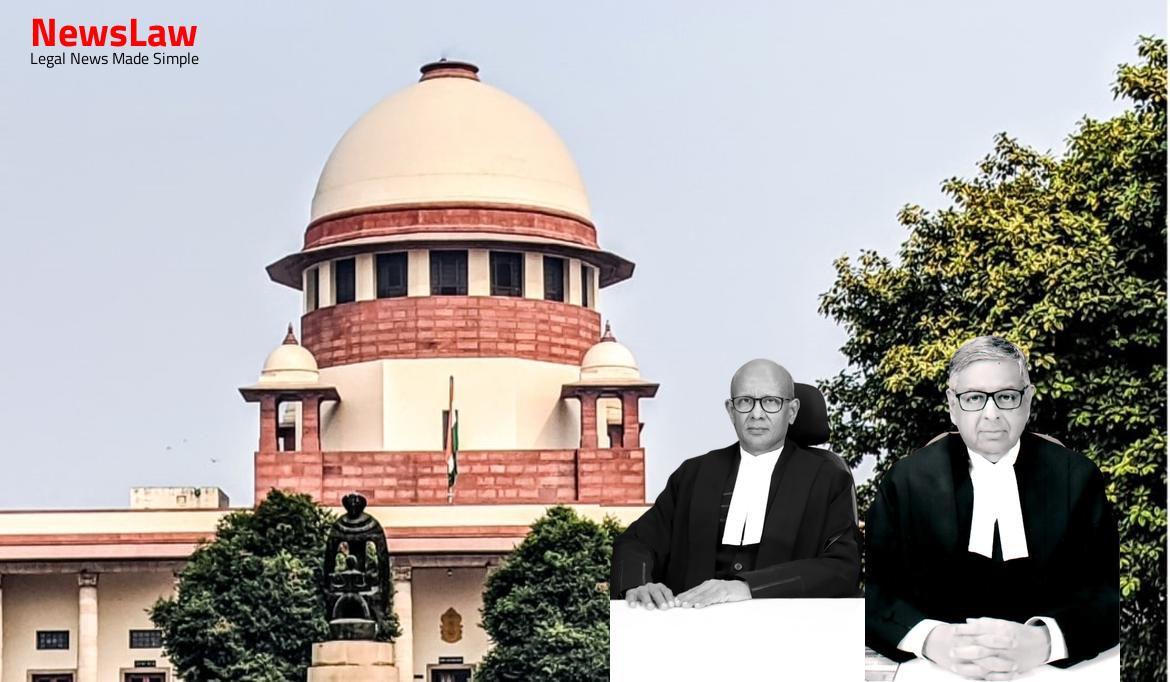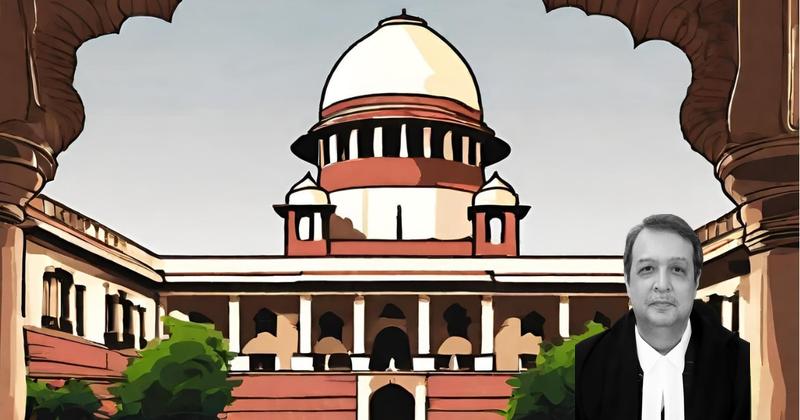The High Court’s assessment of a State Act’s legislative competence and its encroachment upon judicial power sets the stage for an in-depth legal analysis. The case unravels intricate constitutional provisions and judicial precedents to unravel the complexities of State actions within the constitutional framework. Join us as we explore the nuances of legislative validity and the delicate balance between legislative authority and judicial functions in this compelling legal saga.
Facts
- The High Court of Kerala held the State Act to be beyond the legislative competence of the Kerala State Legislature.
- The State Act was deemed to annul the awards of the arbitrators as well as the judgments and decrees passed by the courts.
- The High Court found that the State Act encroached upon the judicial power of the State.
- The State of Kerala, aggrieved by this decision, has filed appeals before the court.
- The construction of the Kallada Irrigation Project was initiated by the State of Kerala in 1961 with financial assistance from the World Bank.
- The World Bank required the inclusion of a special condition known as the Local Competitive Bidding Specification (LCBS) in the agreements related to the project works.
- The State of Kerala found that arbitration references were ineffective due to disputes and collusion between arbitrators, claimant contractors, and department officials.
- Arbitrators awarded unconscionable amounts against agreement provisions without sufficient evidence, causing heavy losses to the State.
- Clauses 51 and 52 of the LCBS allowed for arbitration to settle disputes.
- The State of Kerala canceled arbitration clauses in agreements, revoked arbitrators’ authority, and allowed appeals against past awards to promote just and equitable dispute resolution.
- The decision aimed to facilitate the speedy settlement of disputes in a fair manner.
Also Read: Presumption of Genuine Endorsements in Cheque Case
Issue
- Two important questions of law are involved in the present appeals
- First question pertains to the legislative competence of the Kerala State Legislature to enact the Kerala Revocation of Arbitration Clauses and Reopening of Awards Act, 1998
- Second question pertains to whether the State Act encroaches upon the judicial power of the State
Also Read: Medical Negligence and Compensation: A Landmark Decision
Arguments
- The petitioners argue that the State Act is within the legislative competence of the State Legislature and is not beyond it as contended by the respondents.
- The petitioners rely on various constitutional provisions and judgments to support their arguments.
- They emphasize that the State Act is referable to specific entries in List III of the Seventh Schedule to the Constitution of India.
- The argument revolves around whether the State Act is related to Entries 12, 13, 14, and 37 of List I or Entry 13 of List III.
- The scope of Article 253 and clause (2) of Article 254 of the Constitution of India is also examined in this context.
Also Read: Remand of Writ Petition for Restoration and Decision on Merits
Analysis
- An error of law on the face of the award indicates finding erroneous legal propositions as the foundation of the award.
- Documents not directly or indirectly incorporated into the award are not considered for identifying errors.
- If a State law receives the President’s assent despite inconsistency with a Central law, the State law prevails in that State.
- The action of the Central Government was deemed quasi-judicial in specific cases, not administrative.
- The decision to appeal to the Central Government involves discretion, not a ministerial act.
- Objects appearing in the judgment without a reason are not part of the legal reasoning.
- The court’s authority may extend beyond majority decisions in certain situations.
- Recommendation for consideration of the Model Law on International Commercial Arbitration by all States.
- An arbitral institution, chambers of commerce, and other relevant bodies should adhere to the uniformity of arbitral procedures.
- State Acts cannot invalidate judicial decisions made earlier by legislation.
- The principle of per incuriam means ‘ignorance’ and is applied in relaxation of the rule of precedents.
- Separation of powers doctrine must be respected in State actions to avoid encroachment.
- Orders involving discretion are judicial decisions if based on objective standards.
- The judgment discusses the enactment of the State Act within the legislative competence of the State Legislature.
- It emphasizes the importance of obtaining the President’s assent for State laws in the context of legislative validity.
- The analysis delves into the concept of repugnancy between State and Central laws and how it is resolved through the constitutional framework.
- The declaration of the State Act as unconstitutional due to its interference with judicial functions is a focal point of the discussion.
- The judicial vs administrative powers under the 1996 Act are examined, highlighting the judicial nature of certain decisions.
- Section 3 of the State Act provides for the cancellation of arbitration clauses and revocation of the authority of the arbitrator.
- Sub-section (1) of Section 3 states that arbitration clauses in every agreement shall stand cancelled, the authority of the arbitrator appointed under such clauses shall stand revoked, and the agreement shall cease to have effect in relation to the matters in dispute.
- Sub-section (2) of Section 3 clarifies that parties to an agreement can file a suit in court regarding the validity or effect of the agreement as if the arbitration clauses were never included.
- Section 4 of the State Act specifies the period of limitation for filing suits related to arbitration disputes.
- Section 5 gives the State Government the power to file an appeal against awards that are not in accordance with the agreement terms or involve unconscionable amounts.
- Section 6 clarifies that the provisions of the Code of Civil Procedure, 1908, apply to all proceedings and appeals under the State Act.
- Section 7 states that the provisions of the State Act apply to all proceedings, regardless of any inconsistencies with the Arbitration Act, 1940, or the Arbitration and Conciliation Act, 1996.
- The State Act is found to be liable to be held unconstitutional due to encroachment upon the judicial powers of the State.
- The State Act is determined to fall under Entry 13 of List III of the Seventh Schedule to the Constitution of India.
- The State Act is not deemed to be related to Entries 12, 13, 14, and 37 of List I of the Seventh Schedule or to Article 253 of the Constitution of India.
Decision
- No order as to costs.
- The present appeals are accordingly disposed of.
- Pending application(s), if any, shall stand disposed of in the above terms.
Case Title: THE SECRETARY TO GOVT. OF KERALA . Vs. JAMES VARGHESE . (2022 INSC 506)
Case Number: C.A. No.-006258-006258 / 2014



